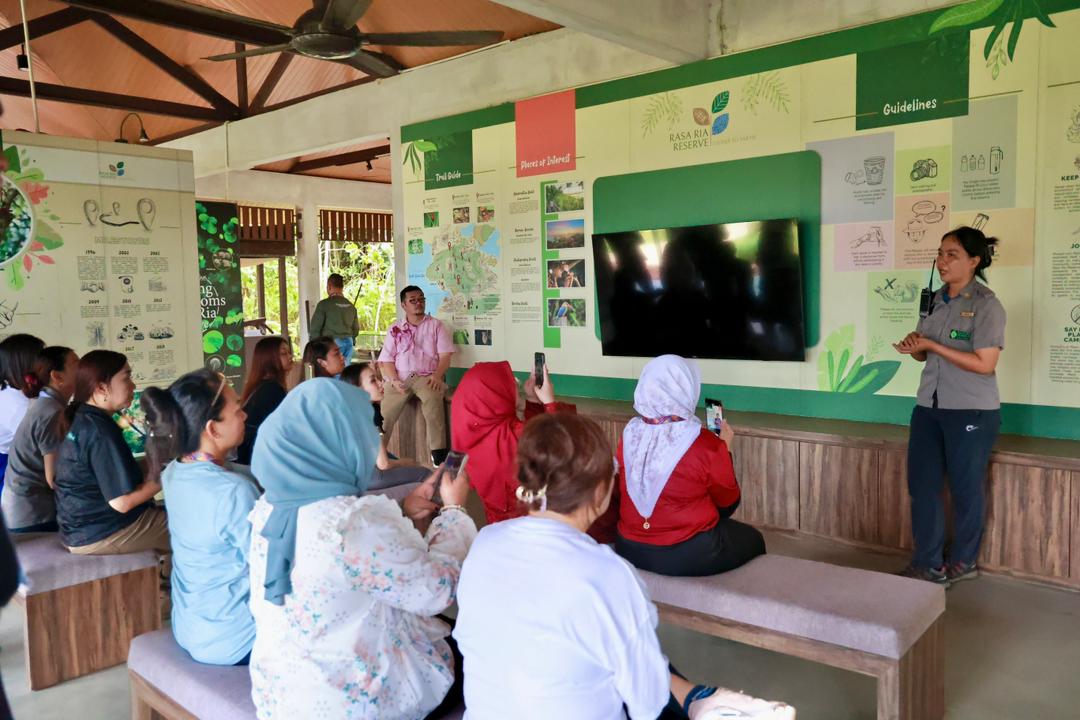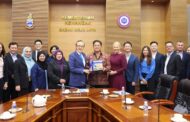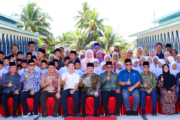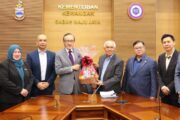Participants at a briefing on conservation efforts at the Rasa Ria Reserve, conducted by the Shangri-La Rasa Ria staff.
KOTA KINABALU: Twenty hotel representatives from across Sabah have completed a three-day Sustainable Tourism Courseorganised by the Sabah Tourism Board (STB) in collaboration with the Global Sustainable Tourism Council (GSTC).
Held from 21 to 23 October at Shangri-La’s Rasa Ria Resort & Spa, the training aimed to enhance the understanding of sustainability issues and practices in hotel management. Participants were guided on applying the GSTC Hotel Standard as a benchmark and assessment tool for managing environmental, cultural, and community impacts within hospitality operations.
Leading the training was Kingston Khoo, GSTC trainer and co-founder and CEO of Dusky Leaf Adventures. Through group discussions and practical exercises, hotel managers learned to develop actionable strategies in areas such as waste reduction, energy efficiency, and local community engagement.
Among the participating hotels and lodges were Borneo Nature Lodge, Ibis Styles Kota Kinabalu, Promenade Hotel, Sukau Rainforest Lodge, Utan Rainforest Lodge, Sutera Sanctuary Lodge, Tabin Wildlife Resort, Tanini, Yayasan Sabah Group, and Klagan Regency.
“By understanding and applying sustainability standards, our tourism players can better contribute to Sabah’s long-term vision of becoming a responsible and competitive destination,” said Julinus Jeffery Jimit, the Chief Executive Officer, Sabah Tourism Board.
Following this session, the next GSTC training for tour operators will take place from 11 to 13 November 2025 at Hyatt Centric Kota Kinabalu. The upcoming course will focus on integrating sustainability within tour operations and product design.
On top of these training initiatives, Sabah Tourism Board also plans to carry out destination assessment exercises in 2026 to evaluate the level of awareness and adoption of sustainable tourism best practices among industry players.
STB continues to strengthen its sustainability agenda by supporting hotels, lodges, tour operators, Destination Management Organisations (DMOs), and local councils, alongside working closely with government agencies, non-governmental organisations (NGOs), local communities, academic institutions, and international partners such as the Global Sustainable Tourism Council (GSTC).





























